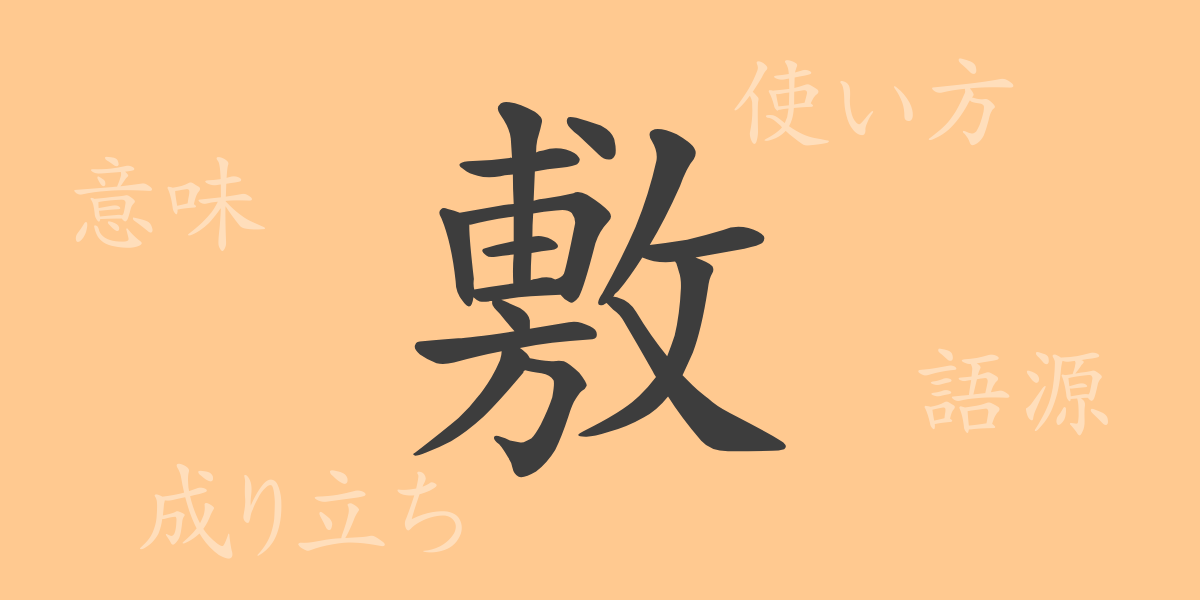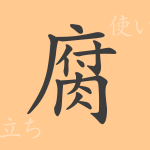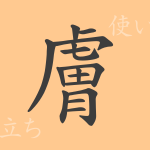The rich culture of Japan is deeply rooted in the power of its language. The 常用漢字 (jōyō kanji) in the Japanese language carry profound meanings and fascinating histories. In this article, we will spotlight one such 常用漢字 (jōyō kanji), “敷 (shiku),” and delve into its origins and contemporary usage. We will explore the world of this kanji, which is closely tied to our daily lives through words like 敷く (shiku), 敷地 (shikichi), and 敷金 (shikikin).
Origins of 敷 (shiku)
The kanji “敷 (shiku)” is a character that originated from ancient China. Its form is composed of “帛 (haku),” meaning “cloth,” and “夂 (chi),” which indicates an action or state. Originally, it meant “to spread cloth,” and over time, it came to mean “spread” and “expand.” As time passed, it also became an important character in Japan, signifying the act of “敷く (shiku)” or “to spread.”
Meaning and Usage of 敷 (shiku)
The kanji “敷 (shiku)” not only means “spread” and “expand,” but also “establish” and “apply.” This character is used as a verb in “敷く (shiku)” and also appears in nouns and adjectival nouns. For instance, “敷地 (shikichi)” means land, and “敷金 (shikikin)” refers to the deposit paid in advance for a rental agreement. Additionally, in the term “敷衍 (fuen),” it means “to elaborate in detail,” showcasing its diverse applications.
Reading, Stroke Count, and Radical of 敷 (shiku)
To deepen our understanding of the kanji “敷 (shiku),” let’s look at its readings and components:
- Reading: On’yomi (音読み) is “フ (fu),” Kun’yomi (訓読み) is “し・く (shi-ku)”
- Stroke Count: 15 strokes in total
- Radical: “攴 (boku)”
Idioms, Phrases, and Proverbs Using 敷 (shiku)
Idioms, phrases, and proverbs containing the kanji “敷 (shiku)” reflect its inherent meanings. For example, “敷衍する (fuen suru)” means to elaborate on a point, “敷金 (shikikin)” is the security deposit paid when renting a property, and “敷地 (shikichi)” refers to the land where a building stands. In proverbs, “金を敷いて道をつくる (kane wo shiite michi wo tsukuru)” teaches that money can solve difficult problems.
Summary of 敷 (shiku)
In this article, we have examined the kanji “敷 (shiku),” from its origins to its modern usage, readings, components, and the idioms, phrases, and proverbs that include it. This frequently used kanji holds simple yet rich meanings and plays a crucial role in our language. By understanding the history and meanings behind words, we can reaffirm the depth and beauty of the Japanese language.

























